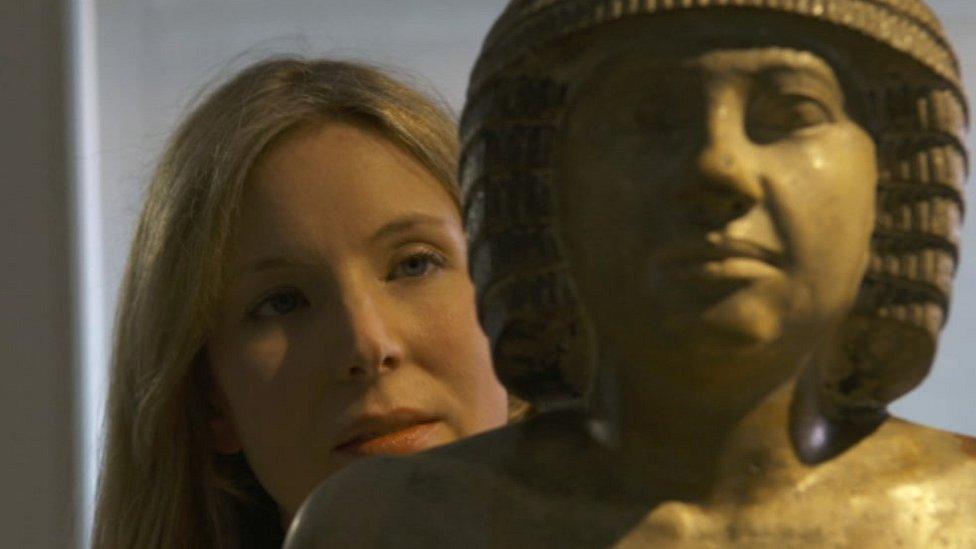Sekhemka statue sale: Council eyes 'global' reputation for arts
- Published
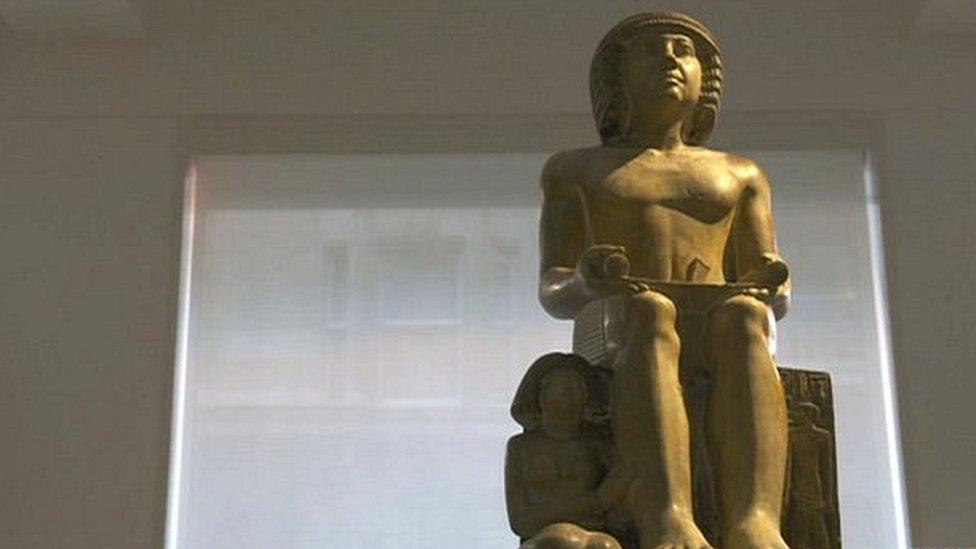
The Egyptian government campaigned against Northampton Borough Council's sale of the Sekhemka figurine in 2014
A council that caused an international heritage row by selling off an Egyptian statue has said it is aiming for "a global" cultural reputation.
The Egyptian government fought Northampton Borough Council's £16m sale of the Sekhemka figurine in 2014.
It faced widespread criticism, with protests and a warning from lawyers not to sell for "financial reasons".
Three years on, the council has now said it wanted to "assess" what heritage it had to "shout about".
In a report, the authority said it wanted to come up with an "action plan" to promote the town internationally.
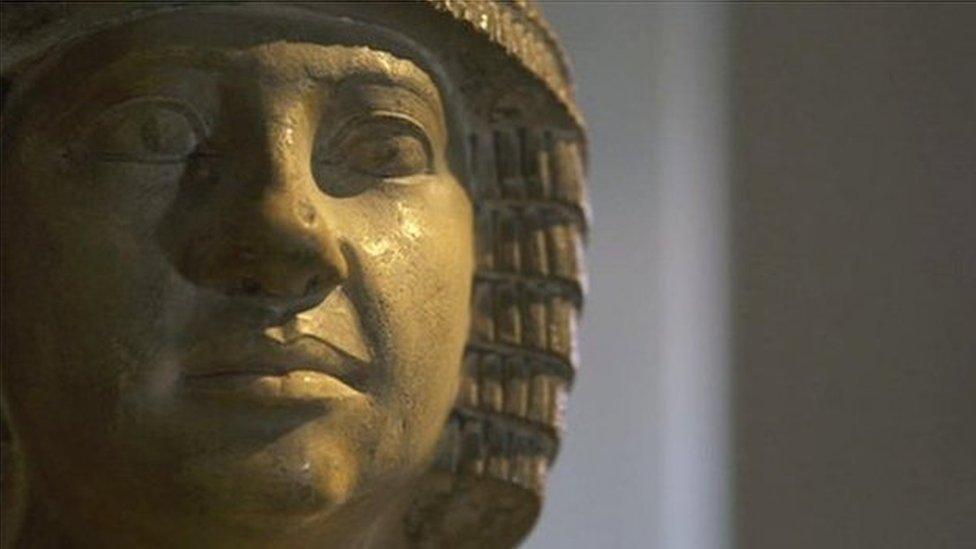
The Sekhemka statue sold at auction for nearly £16m in 2014
Gunilla Loe, chairman of the Save Sekhemka Action Group, said: "One wishes one could say something positive but one cannot.
"I do not think they (the council) understand culture and heritage - it is not just a question of money. What flourishes in this town are private initiatives."
A report for the council's scrutiny committee said it wanted to "increase visitor numbers" by gaining "an understanding of how Northampton's tourism, heritage and culture offer is marketed".
It also wanted to "identify any gaps that can be developed".
A council spokesman said: "Northampton has a rich and diverse heritage and this is something we can help do more to highlight.
"The purpose of this piece of work is to assess precisely what we have to shout about and then how we can turn that into an attractive, unified offering for a visitor audience."
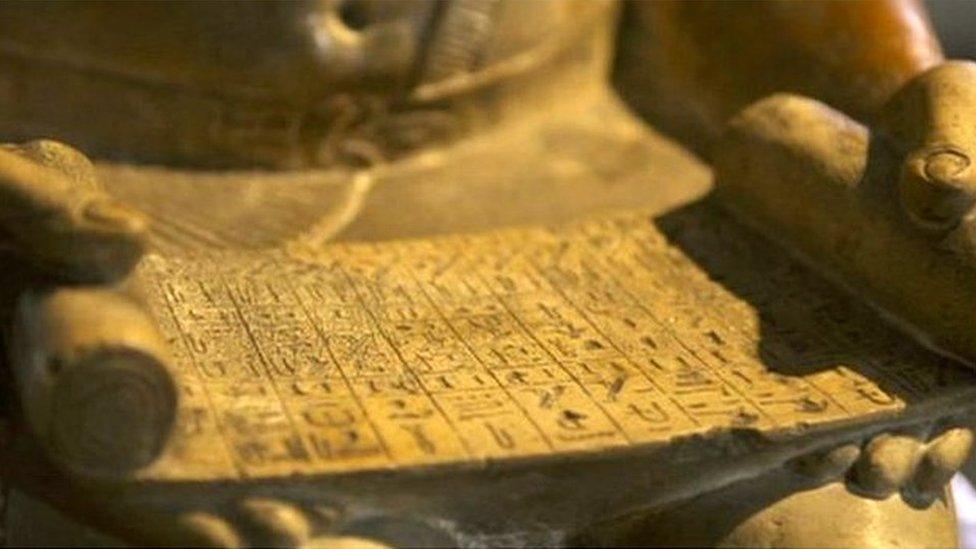
The statue of Sekhemka shows him reading a scroll and would have been placed in his tomb
As the BBC revealed last year, the 4,000-year-old figurine is thought to be in the hands of a private collector in the US.
Egyptian Ambassador Ahsraf Elkholy condemned the sale as an "an abuse to the Egyptian archaeology and the cultural property".
He said the statue of Sekhemka, who was a royal chief, judge and administrator, should have been handed back to Egypt if the council no longer wanted it.
The UK government initially imposed a ban on its export - due to the statue's cultural significance and "outstanding aesthetic importance" - but this was lifted after no UK buyer came forward.
Spencer Compton, the second Marquis of Northampton, acquired Sekhemka during a trip to Egypt in 1850. It was presented to Northampton Museum by his son some years later.

Welcome to Northampton
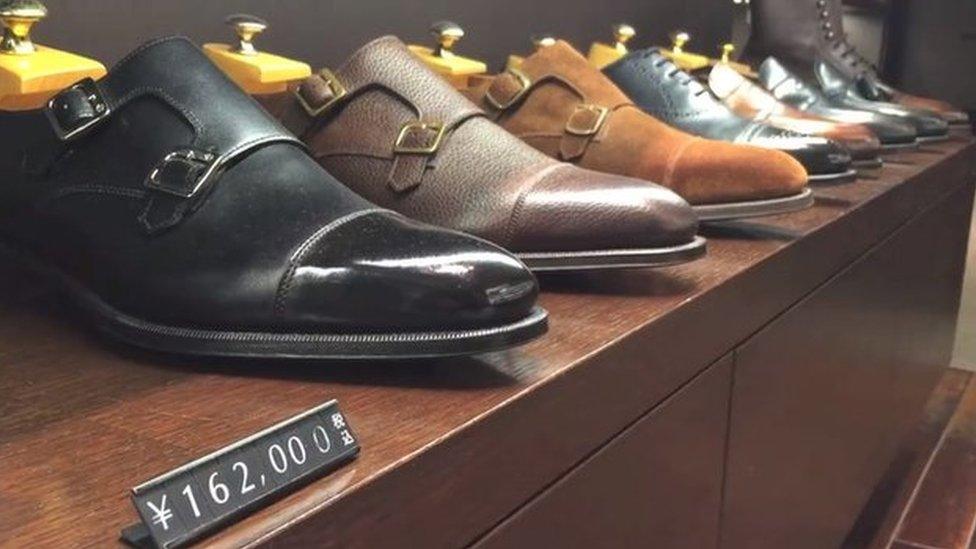
Northamptonshire's John Lobb shoes being sold in a department store in Tokyo
Northampton's shoemakers are renowned around the world, with Japan importing £20m-worth of its shoes a year in 2015
If you are into sport, you can enjoy first-class county cricket, top-flight rugby union at Saints and third-tier football with the Cobblers
Author Alan Moore helped put the town on the cultural map with Watchmen, but the council are unlikely to ask for his help after he labelled the statue sale "catastrophic"
Notable cultural exports include Francis Crick, Anne Bradstreet, Matt Smith, Bauhaus, Des O'Connor, Tim Minchin and Alan Carr
The Battle of Northampton in 1460 resulted in the downfall of the House of Lancaster, led by King Henry VI
- Published11 March 2016
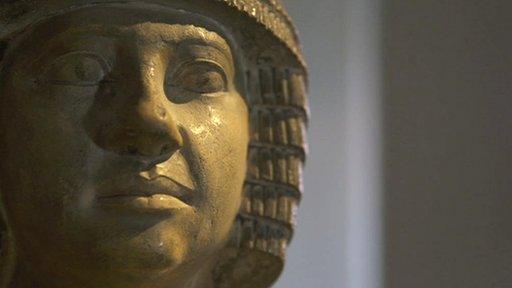
- Published28 January 2016

- Published1 August 2014

- Published10 July 2014
